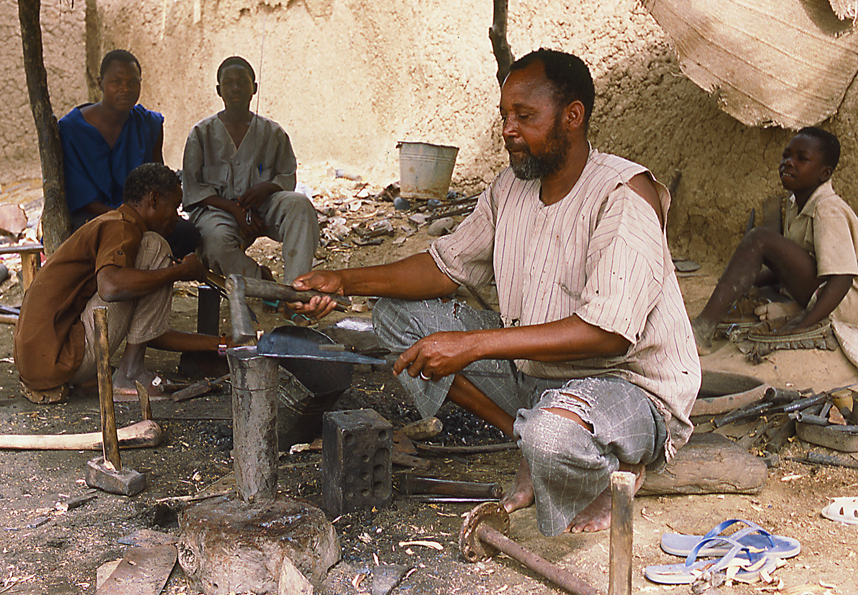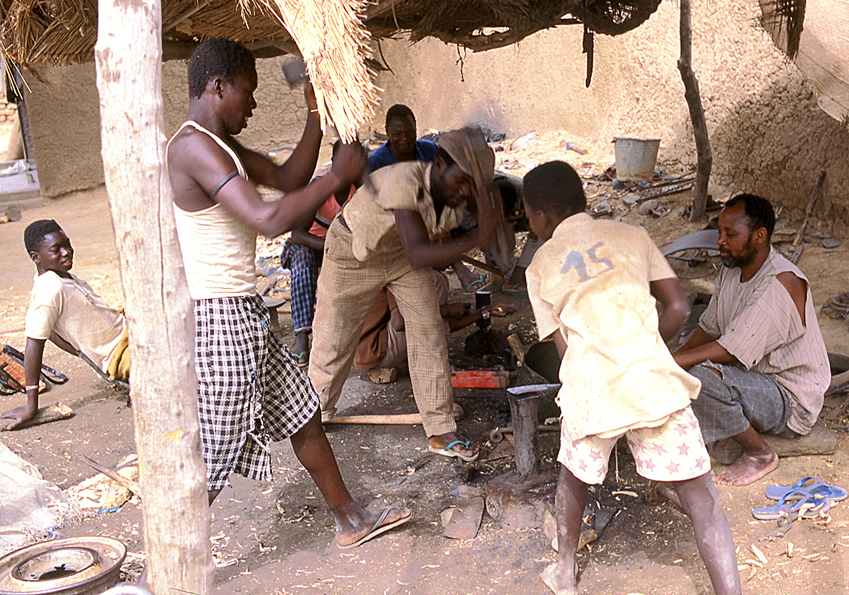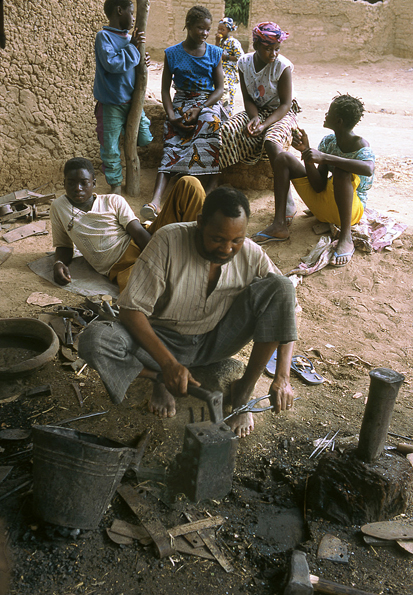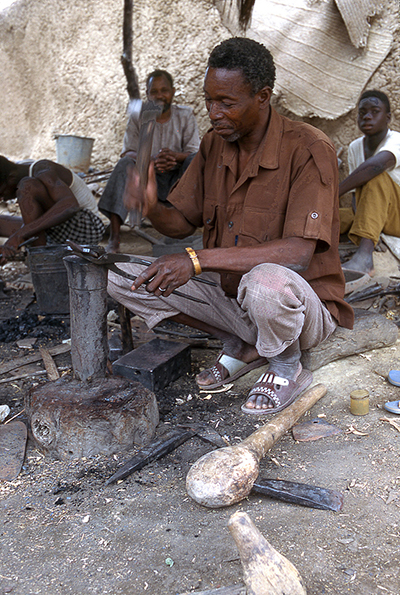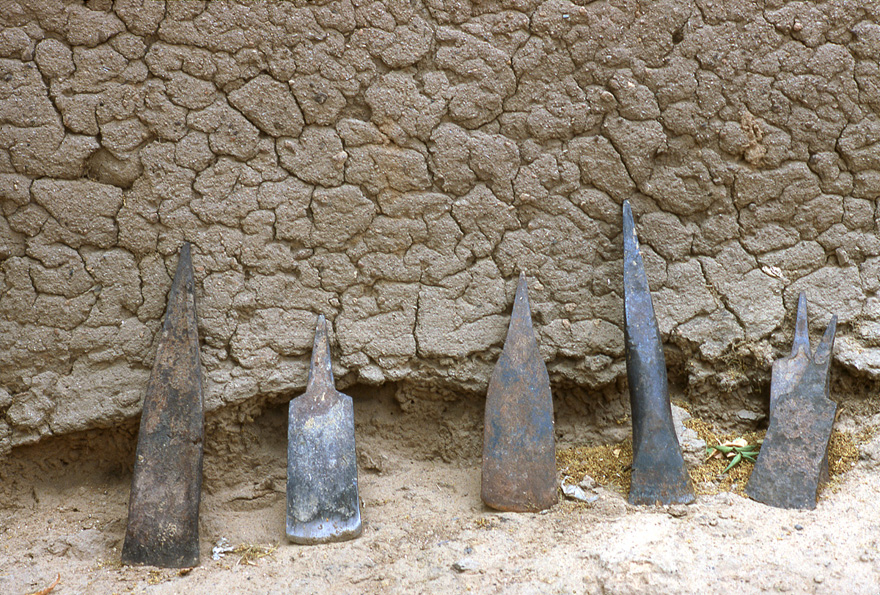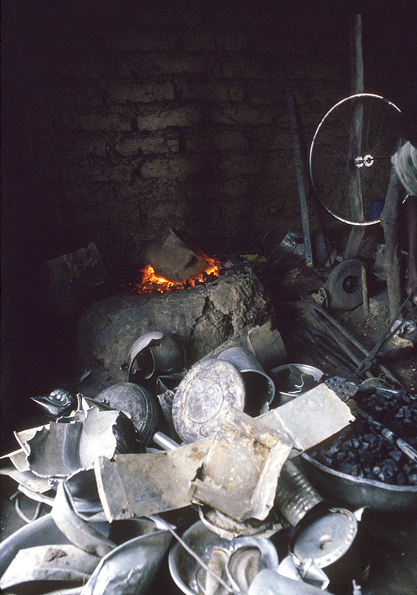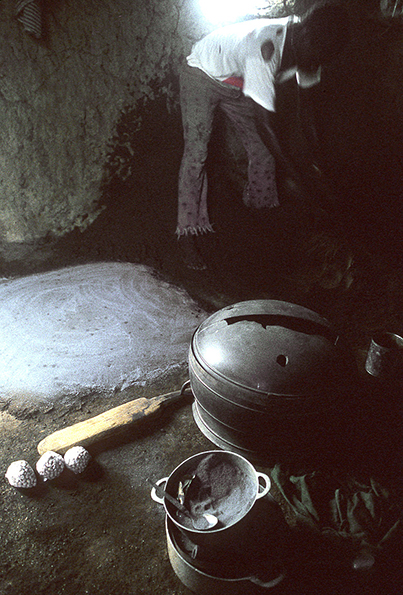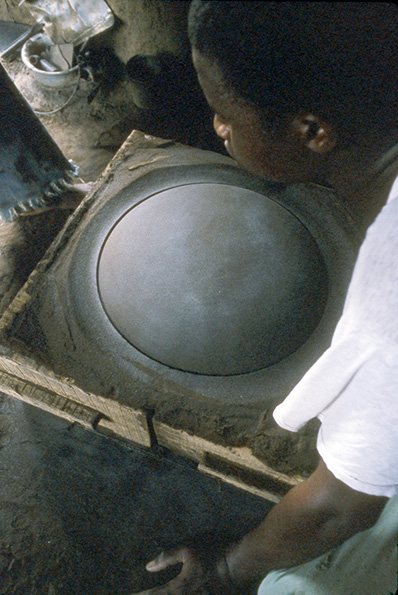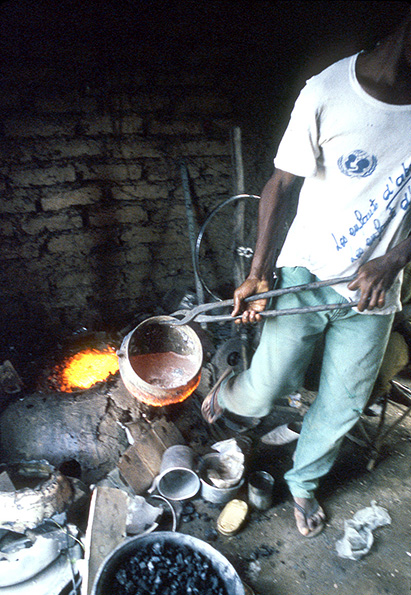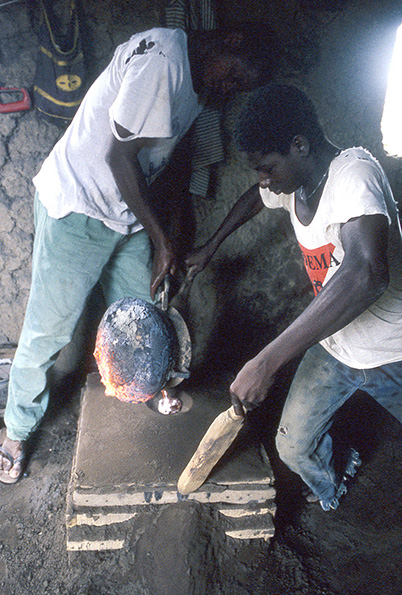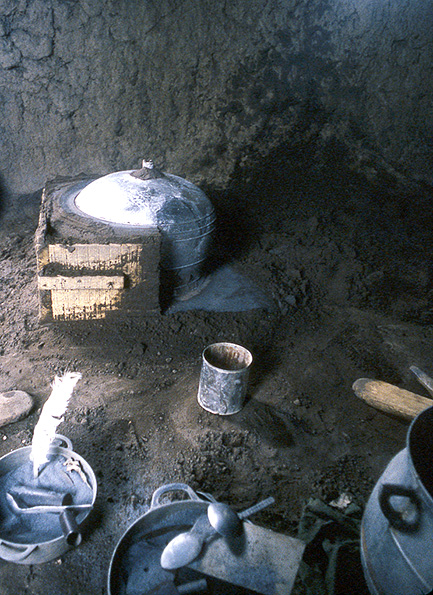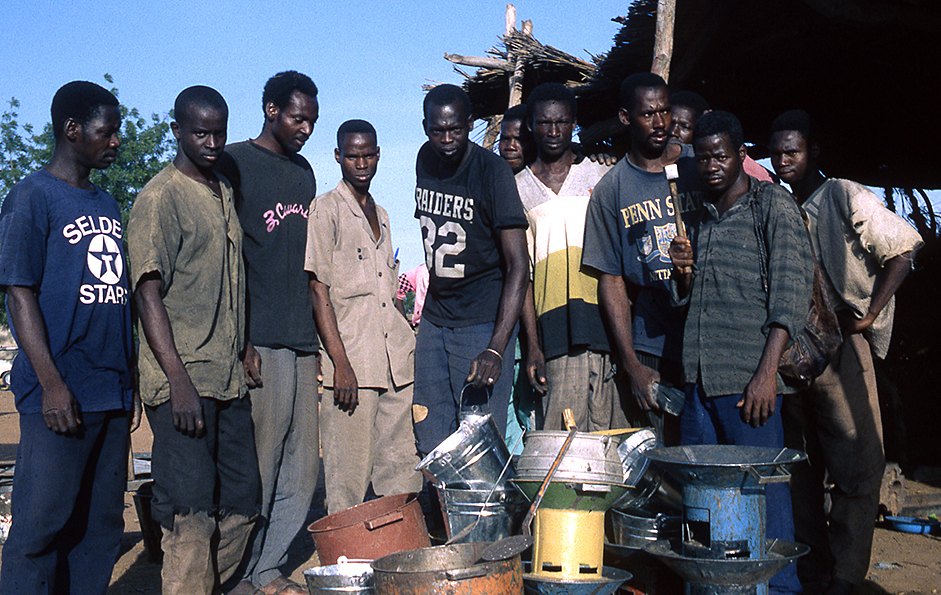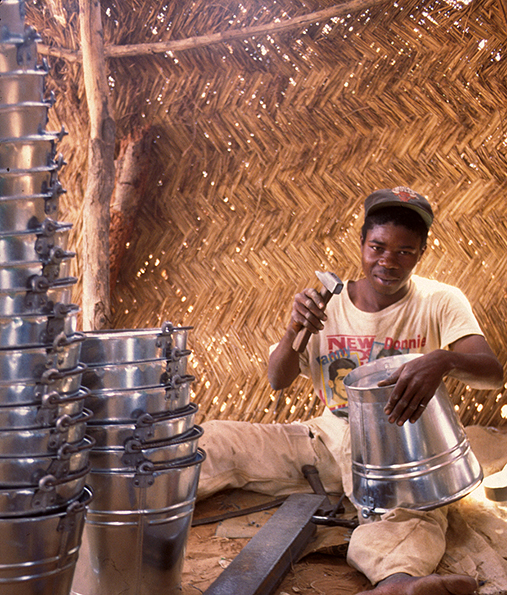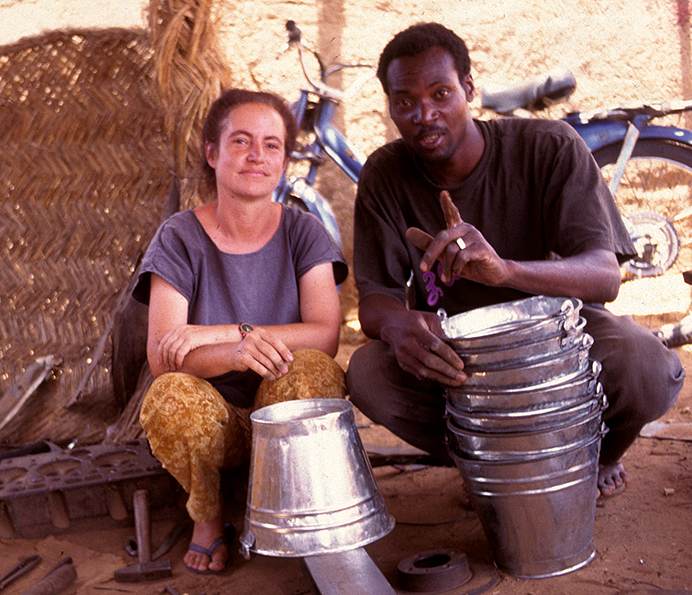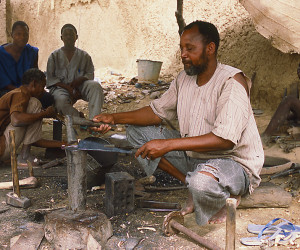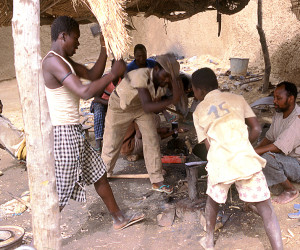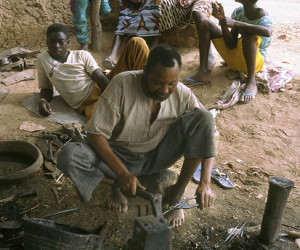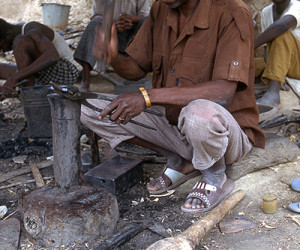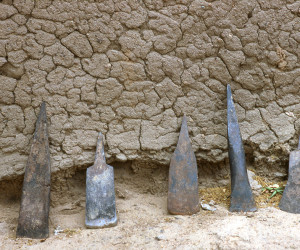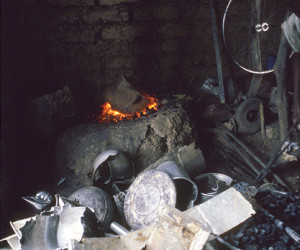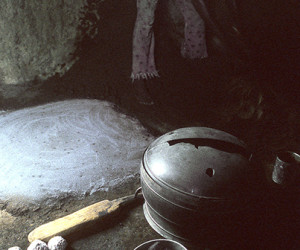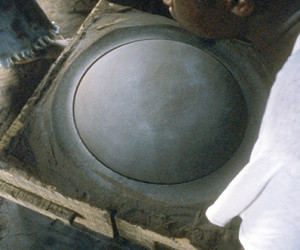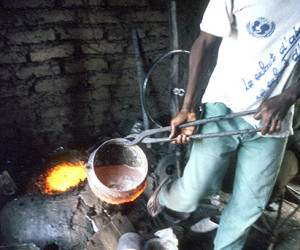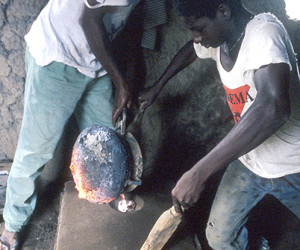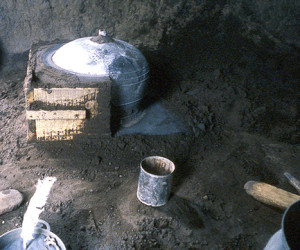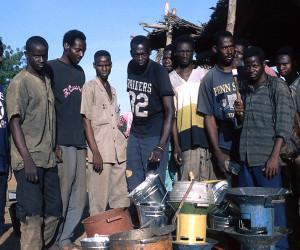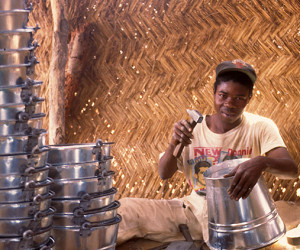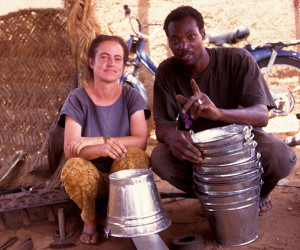As part of her Fulbright research, Janet worked at a forge in Dioro for several weeks. That she would be able to work at a forge was not a forgone conclusion since metal working in Mali as in the rest of the world is almost exclusively a male occupation. Janet told the blacksmiths that she knew it was unusual for a woman to work at the forge, but she wanted to work and learn. She didn’t want to just watch. She told them she wanted to start however apprentices start. A metal worker herself, the residency taught her to appreciate the volumetric nature of metal as well as gaining an appreciation of the role of blacksmithing in Malian culture.
Janet was also a frequent visitor to a foundry that made aluminum cooking pots. There was an aluminum shortage in Mali in 1995. The owner of the forge traveled far and wide in search of metal without success. If someone needed a new cast aluminum cooking pot or other objects, they had to bring in the old one and anything else to be melted down into the new object.
The last of Goldner’s residencies during her Fulbright was with a group of men who made pails and other metal objects with mechanical joinings rather than with fire. The pails were made of new galvanized sheet metal by a process of cutting, folding & crimping the metal onto itself. Rivets for attaching the handle mounts are made by pounding heads onto short pieces of rod.
